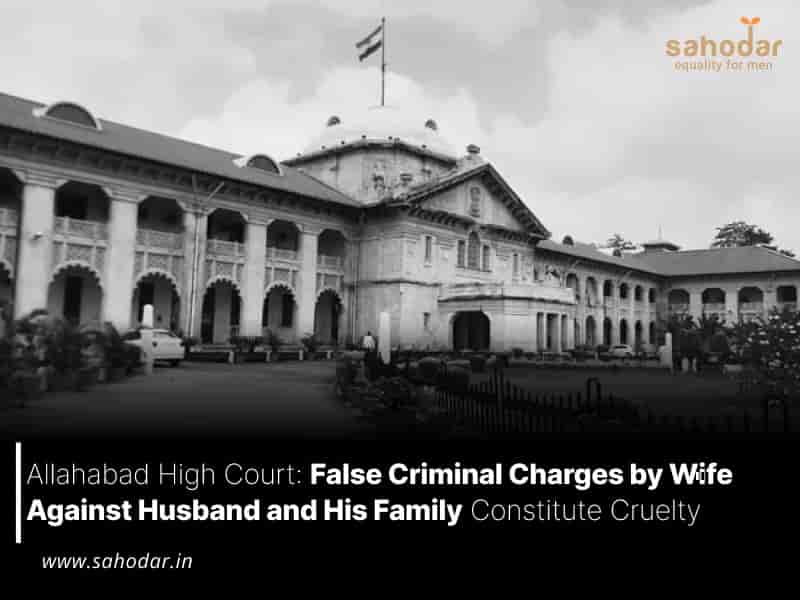“For the act of cruelty committed, once arrest of parents of a spouse is caused on false allegations or allegations found to be false during a criminal trial, no further or strict proof of cruelty may be prescribed or applied by Courts.”
Allahabad High Court: In an appeal filed under Section 19 of the Family Courts Act, 1984, stemming from the Family Court’s judgment and order that dissolved the marriage without any provisions for permanent alimony, the division bench of Justices Saumitra Dayal Singh and Donadi Ramesh ruled that the husband’s claims of cruelty have been substantiated. Consequently, the Court determined that there was no need to interfere with the Family Court’s decree. However, the Court ordered a lump sum alimony of ₹10,00,000 to be paid to the wife by December 31, 2024.
The couple married in 2002 and have a son together. The husband asserts that the wife left him on February 12, 2006, and has since refused to reconcile. The wife initiated divorce proceedings in 2006. The husband has accused her of cruelty due to a false criminal case she filed against him and his family under Sections 498A, 323, 504, and 506 of the Penal Code, 1860, as well as under Section 3 read with Section 4 of the Dowry Prohibition Act, 1961, alleging demands for dowry. It is noted that the husband’s parents were arrested in relation to this case but were subsequently released on bail.
The Court observed that the first FIR was filed six years into the marriage, while the second was lodged nearly two months after the wife initiated the divorce proceedings. It further noted that the husband and his parents were acquitted in the criminal case, as the wife could not substantiate her allegations during the evidence stage and became hostile. Consequently, the Court determined that a specific claim of cruelty was indeed present. The act of cruelty, characterized by the false allegations leading to the arrest of the respondent’s parents, was established.
The Court dismissed the wife’s argument that the dowry demand allegations, which led to the criminal prosecution against the husband, were merely a bona fide counter to the divorce proceedings and that they were never intended to result in the severe consequence of marriage dissolution.
The Court stated that when a spouse’s parents are arrested based on false allegations, or if the allegations are proven false during a criminal trial, no additional or stricter proof of cruelty is required by the Courts.
The Court noted that the husband experienced extremely cruel treatment, which may have reasonably made him feel unsafe to live with his wife. The wife’s actions resulted in damage to the husband’s and his family’s reputation and standing in society. Given this suffering, the husband cannot be expected to endure it and restore their marital relationship.
Consequently, the Court concluded that the husband’s claims of cruelty have been substantiated. Therefore, it stated that there was no need to interfere with the Family Court’s decree.
Regarding permanent alimony, the Court noted that the wife is gainfully employed as a member of the teaching faculty at a reputable institution, earning a monthly income of approximately ₹60,000. Additionally, considering that the couple’s son has reached the age of majority, the Court ordered a lump sum alimony of ₹10,00,000 to be paid to her by December 31, 2024. If this payment is not made by the deadline, it will incur interest at a rate of 8% from the date of this order until it is paid in full.
Therefore, the Court partly granted the appeal.

